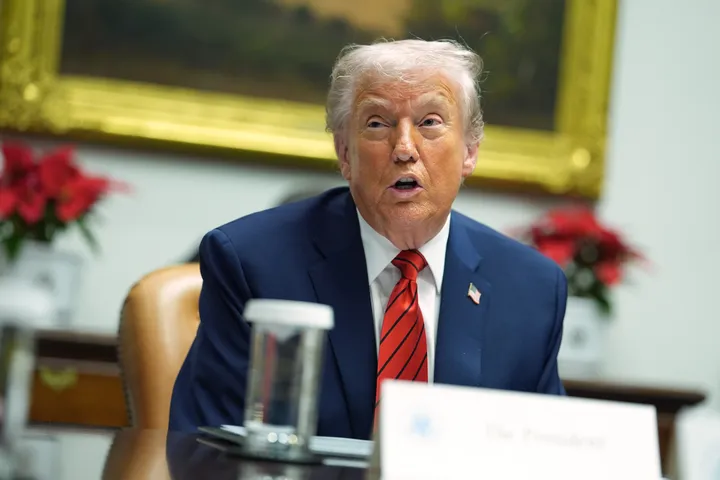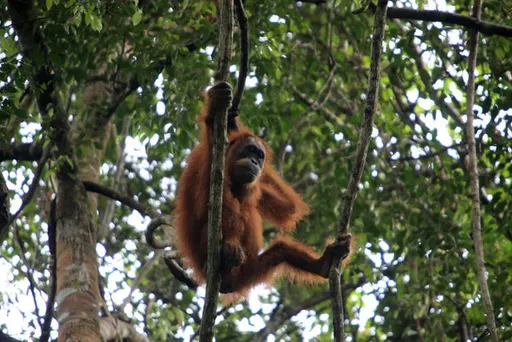Iran's supreme leader on Sunday threw his support behind a decision to hike petrol prices, a move that sparked nationwide unrest in which he said "some lost their lives".
Ayatollah Ali Khamenei blamed "hooligans" for damaging property and said "all the centres of the world's wickedness against us have cheered" the street protests.
A policeman was killed in the western city of Kermanhshah in a clash with armed "rioters", the second confirmed death since protests erupted across Iran on Friday.
Several people were also wounded and dozens arrested in two days of demonstrations that saw motorists block highways and others attack and set fire to public property.
In a speech aired on state television, Khamenei said "some lost their lives and some centres were damaged".
The protests flared hours after it was announced that the price of petrol would be raised by 50 percent for the first 60 litres (16 gallons) and by 300 percent for anything above that each month.
Fires and roadblocks
The petrol pricing plan was agreed by the High Council of Economic Coordination made up of the president, parliament speaker and judiciary chief.
Khamenei said that "I am not an expert and there are different opinions but I had said that if the heads of the three branches make a decision I will support it.
"The heads of the branches made a decision with the backing of expert opinion and naturally it must be implemented," he said.
"Some people would definitely get upset over this decision... but damaging and setting fire (to property) is not something (normal) people would do. It is hooligans."
Following his speech, parliament cancelled a motion to reverse the price hike, semi-official news agency ISNA reported.
Khamenei also pointed at opponents abroad in what he called "the centres of the world's wickedness".
These included the Pahlavi royal family ousted in the 1979 Iranian Revolution and the People's Mujahedeen of Iran (MEK) group, which Iran considers a "terrorist" cult.
"What I am asking is that no one help these criminals," Khamenei said, calling on people to distance themselves from those stoking the protests.
Some of the worst violence was in the central city of Sirjan, where acting governor Mohammad Mahmoudabadi said a civilian was killed and fuel stations were among the public property attacked and damaged.
In Kermanshah, a policeman died Sunday, a day after a "confrontation with a number of rioters and thugs," the provincial police chief told IRNA.
In Tehran on Saturday, protesters were seen shouting slogans and burning tyres on a street.
Similar scenes were witnessed in the cities of Shiraz, Isfahan and Bushehr, where security forces fired tear gas and water cannon at demonstrators.
Forty "disruptors" were arrested in the central city of Yazd after clashing with police, the province's public prosecutor told ISNA on Sunday. Most were not locals, he added.
Police said security forces would "not hesitate to confront those disrupting peace and security and will identify the ringleaders and field forces and confront them".
The intelligence ministry said those behind the unrest "have been identified" and that measures would be taken against them, according to ISNA.
Iran supreme leader warns ‘thugs’
In an address aired by state television Sunday, Khamenei said “some lost their lives and some places were destroyed,” without elaborating. He called violent protesters “thugs” who had been pushed into violence by counterrevolutionaries and foreign enemies of Iran.
He specifically named those aligned with the family of Iran’s late shah, ousted 40 years ago, and an exile group called the Mujahedeen e Khalq.
“Setting a bank on fire is not an act done by the people. This is what thugs do,” Khamenei said.
However, he made a point to back the decision of Iran’s relatively moderate President Hassan Rouhani and others to raise gasoline prices. Gasoline in the country still remains among the cheapest in the world, with the new prices jumping up to a minimum of 15,000 rials per litre of gas – 50 percent up from the day before. That’s 13 cents a litre, or about 50 cents a gallon.
A gallon of regular gasoline in the US costs $2.60 by comparison.
Khamenei ordered security forces “to implement their tasks” and for Iran’s citizens to keep clear of violent demonstrators.
That seemed to indicate a possible crackdown could be looming. Economic protests in late 2017 into 2018 were met by a heavy reaction by the police and the Basij, the all-volunteer force of Iran’s paramilitary Revolutionary Guard.
“Such illegal actions would not solve any problem but add insecurity on top of other problems,” Khamenei said. “Lack of security is the biggest calamity for any country and society. That is what they are looking for.”
The protests have put renewed pressure on Iran’s government as it struggles to overcome US sanctions strangling the country’s economy since President Donald Trump unilaterally withdrew America from Tehran’s nuclear deal with world powers over a year ago.
Though largely peaceful, the latest demonstrations devolved into violence in several instances, with online videos purporting to show police officers firing tear gas at protesters and mobs setting fires.
While representing a political risk for Rouhani ahead of February parliamentary elections, they also show widespread anger among Iran’s 80 million people who have seen their savings evaporate amid scarce jobs and the collapse of the national currency, the rial.
Rouhani had been pushing for higher prices to offer payments to the poor for months. While the hike was eventually expected, the decision to raise gasoline prices still caught many by surprise and sparked immediate demonstrations overnight.
Internet disruption
Iranian internet access meanwhile saw disruptions and outages Friday night into Saturday, according to the group NetBlocks, which monitors worldwide internet access. By Saturday night, “real-time network data show connectivity has fallen to just 7 percent of ordinary levels following 12 hours of progressive network disconnections as public protests have continued across the country,” NetBlocks said.
“The ongoing disruption is the most severe recorded in Iran since President Rouhani came to power, and the most severe disconnection tracked by NetBlocks in any country in terms of its technical complexity and breadth,” the group said.
The semi-official ISNA news agency reported Sunday that Iran’s Supreme National Security Council ordered a “restriction of access” to the internet nationwide, without elaborating.
Protester chants seen in online videos mirrored many from the economic protests in late 2017, which resulted in nearly 5,000 reported arrests and at least 25 people killed. Some criticised Iran’s spending abroad on Palestinians and others while the country’s people remain poor.
The tensions in Iran came as weeks of anti-government protests have engulfed Iraq and Lebanon, two Mideast nations that are home to Iranian proxies and crucial to Tehran’s influence abroad.
The country long has suffered economic problems since its 1979 Iranian Revolution cut off the country’s decades-long relationship with the US Iran’s eight-year war with Iraq in the 1980s followed, further straining its economy.
Nuclear deal
The collapse of the nuclear deal has exacerbated those problems. The Iranian rial, which traded at 32,000 to $1 at the time of the accord, fell to 122,600 to $1 in trading on Saturday. Iran has since begun breaking terms of the deal as it tries to force Europe to come up with a way to allow it to sell crude oil abroad despite American sanctions.
The US so far has had a muted response to the protests, with US Secretary of State Mike Pompeo tweeting overnight: “As I said to the people of Iran almost a year and a half ago: The United States is with you.”
In Dubai, the new US ambassador to the United Arab Emirates told The Associated Press that America was “not advocating regime change. We are going to let the Iranian people decide for themselves their future.”
“They are frustrated. They want freedom,” Ambassador John Rakolta said at the Dubai Airshow.
“These developments that you see right now are their own people telling them, ‘We need change and to sit down with the American government.’”
























